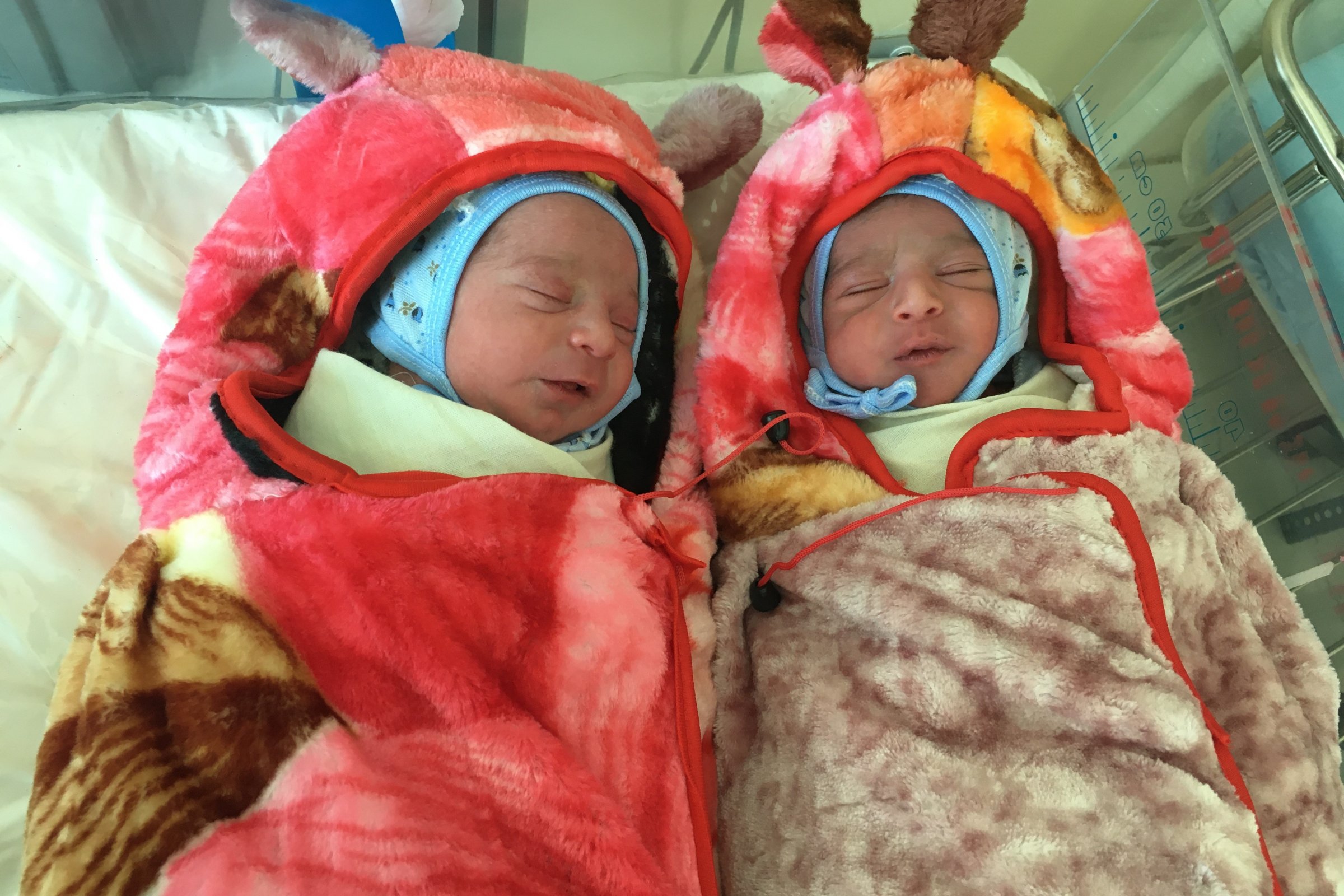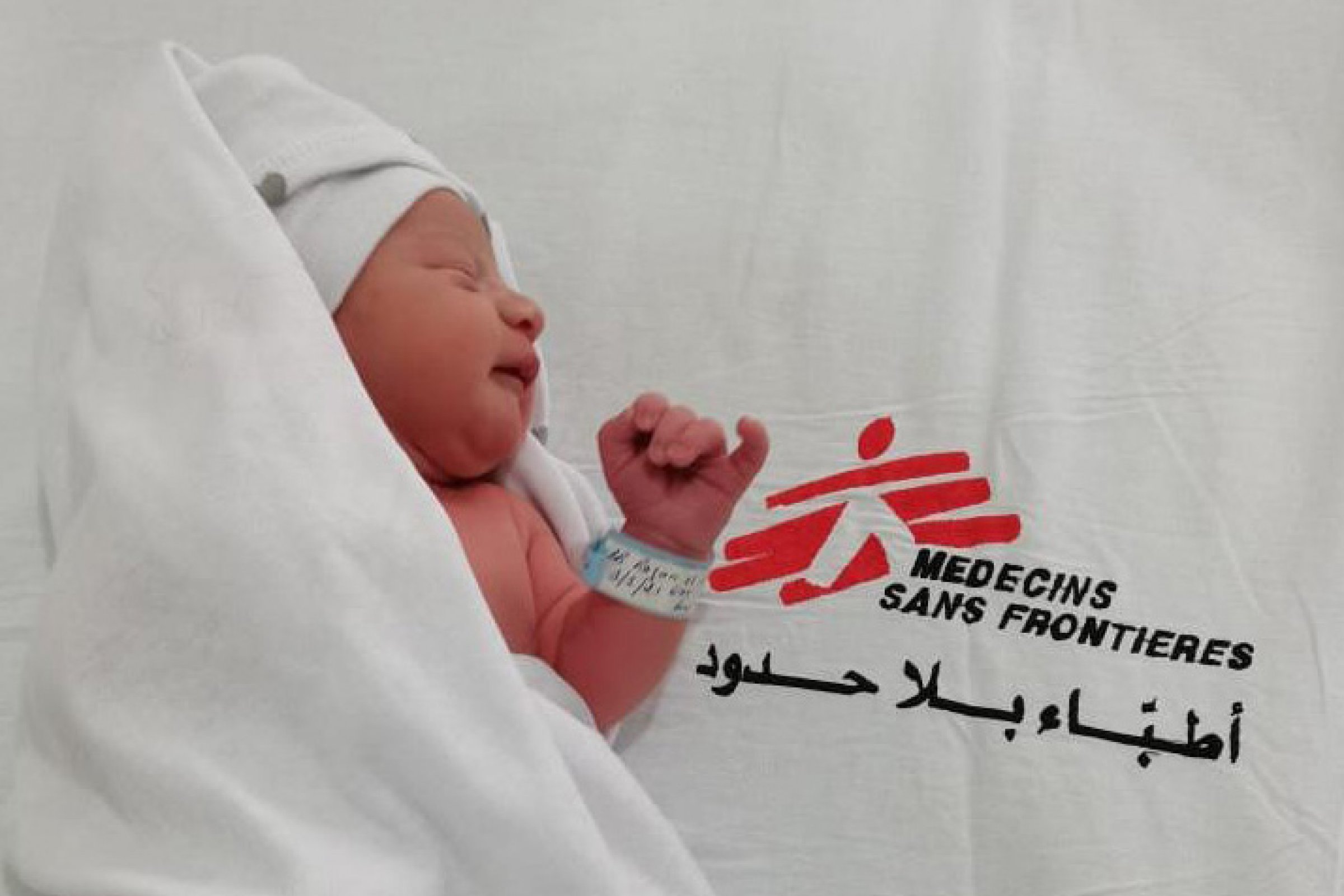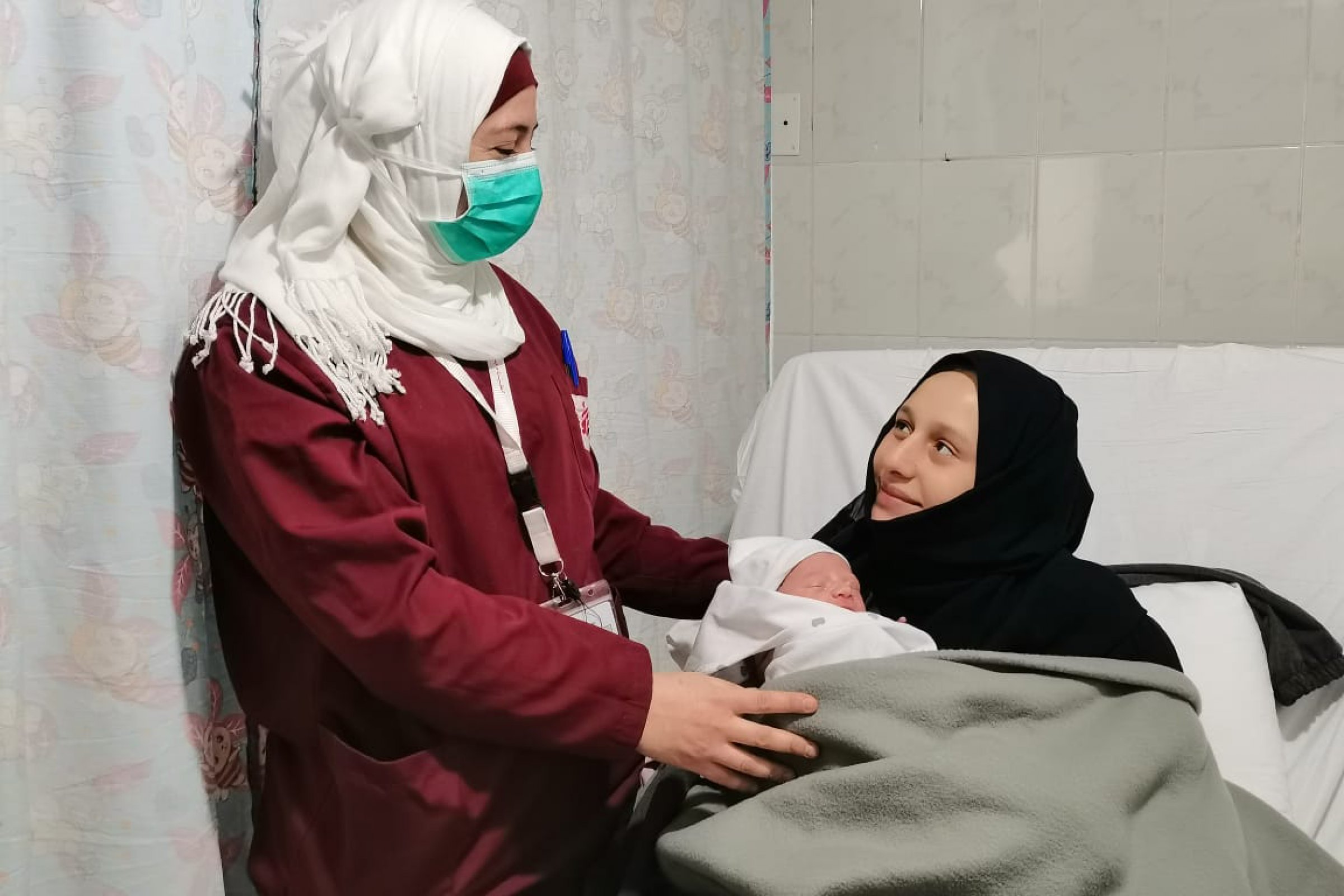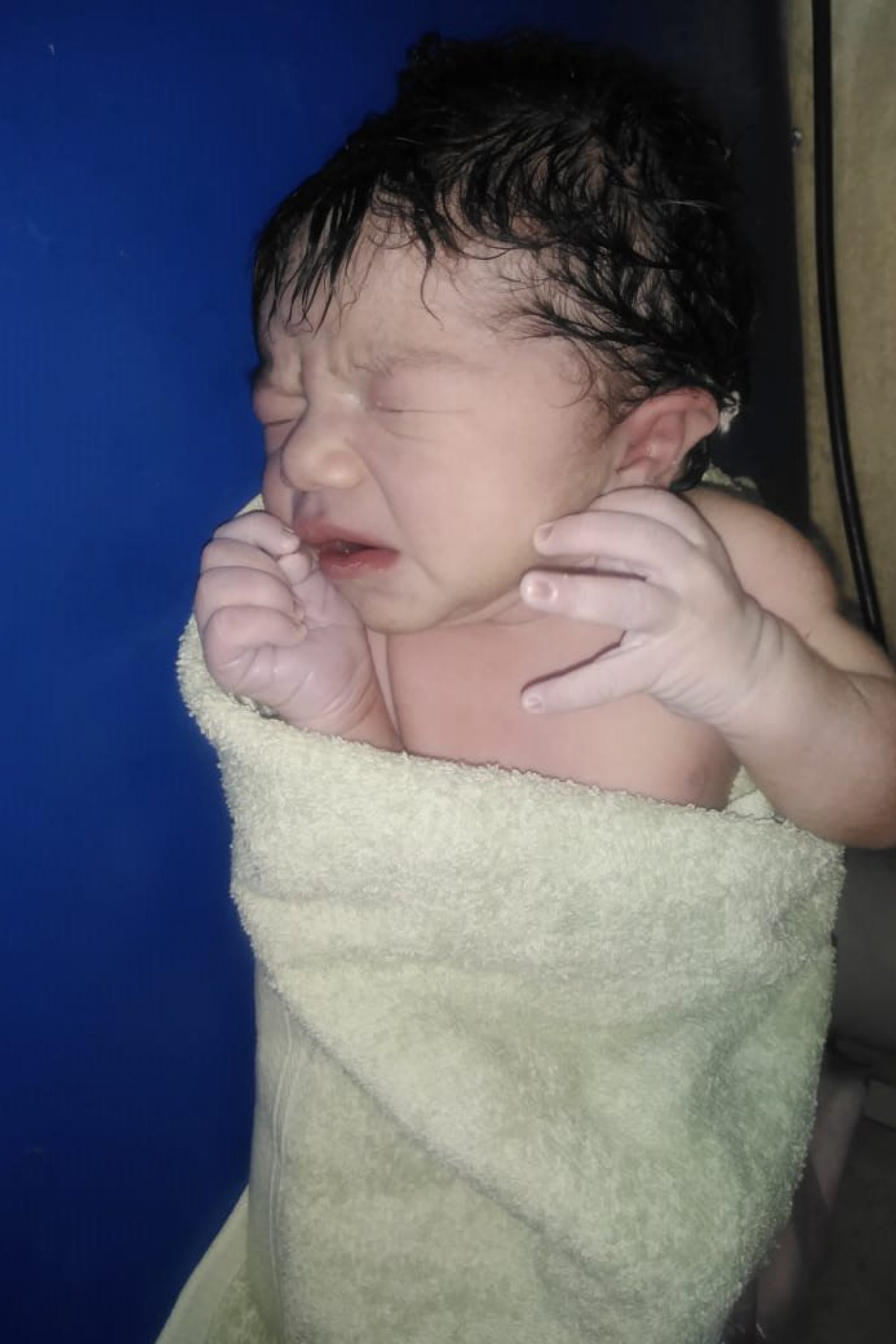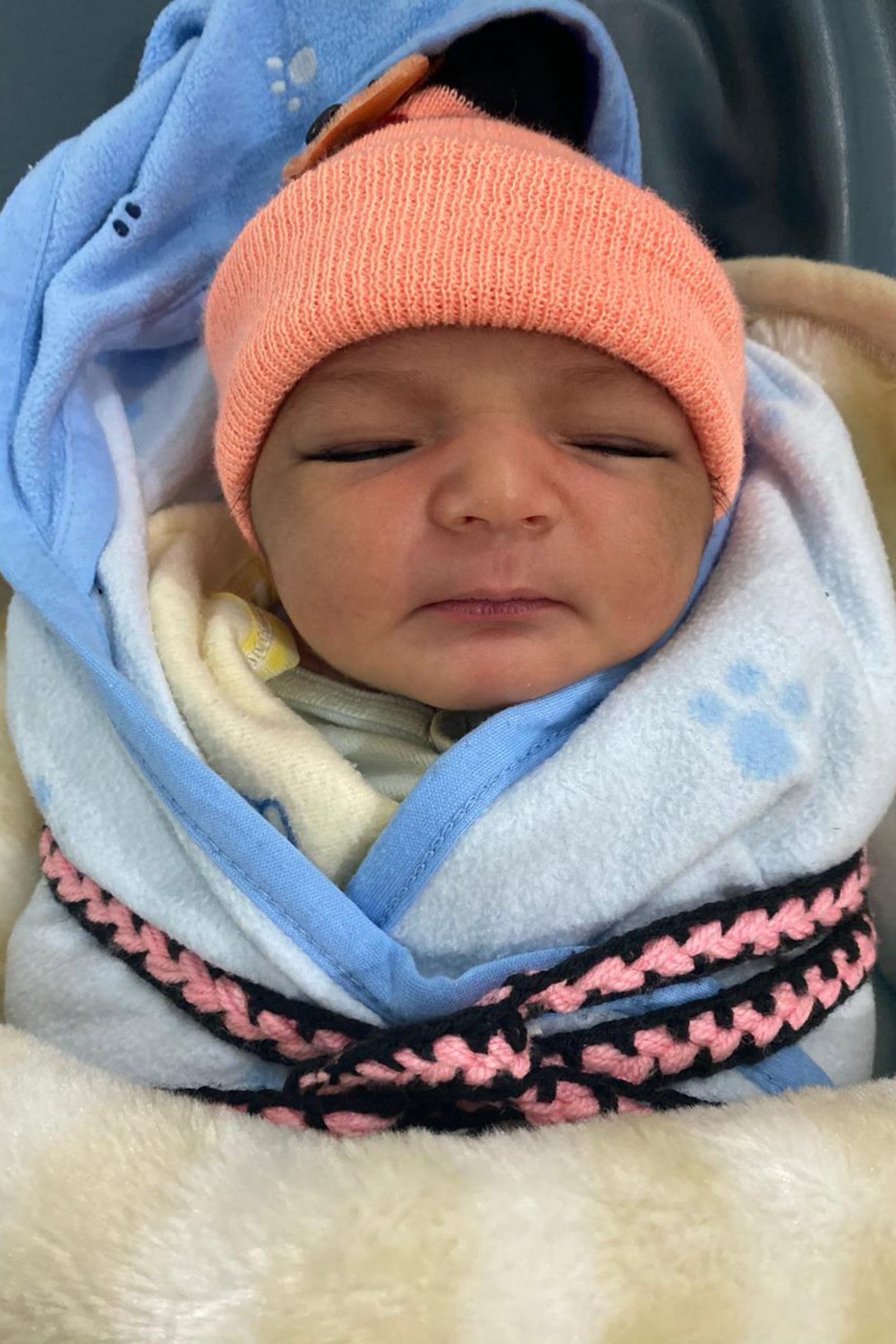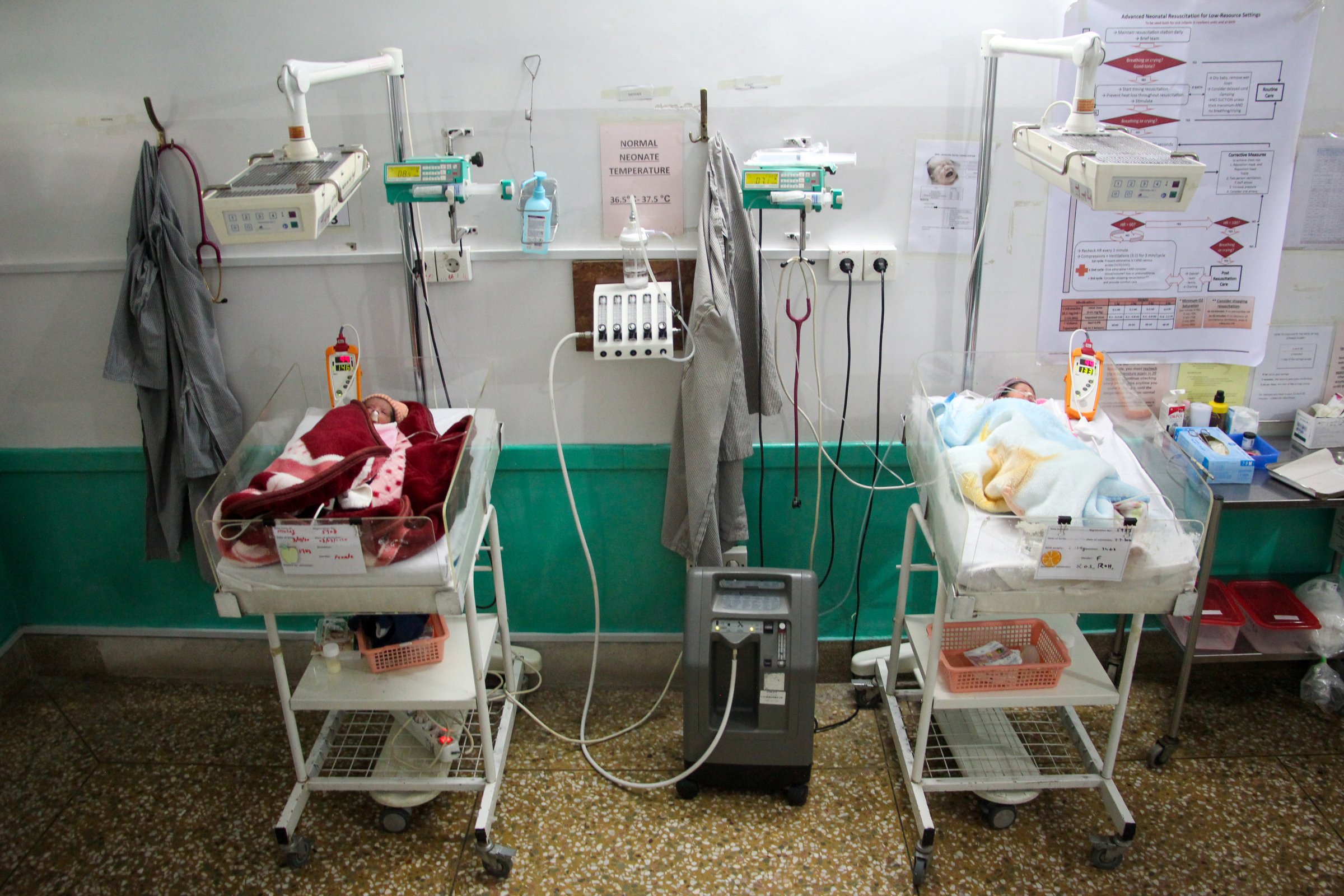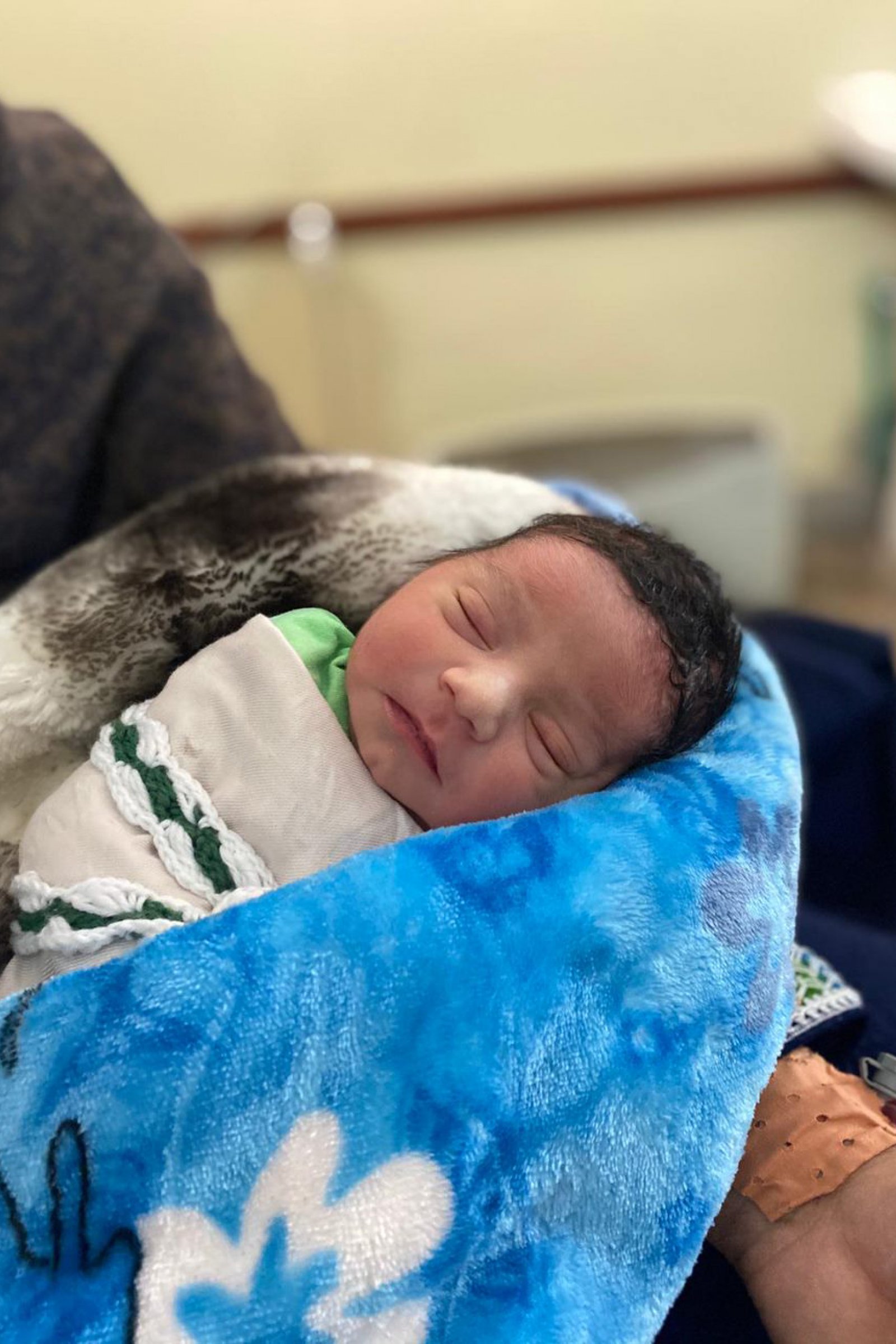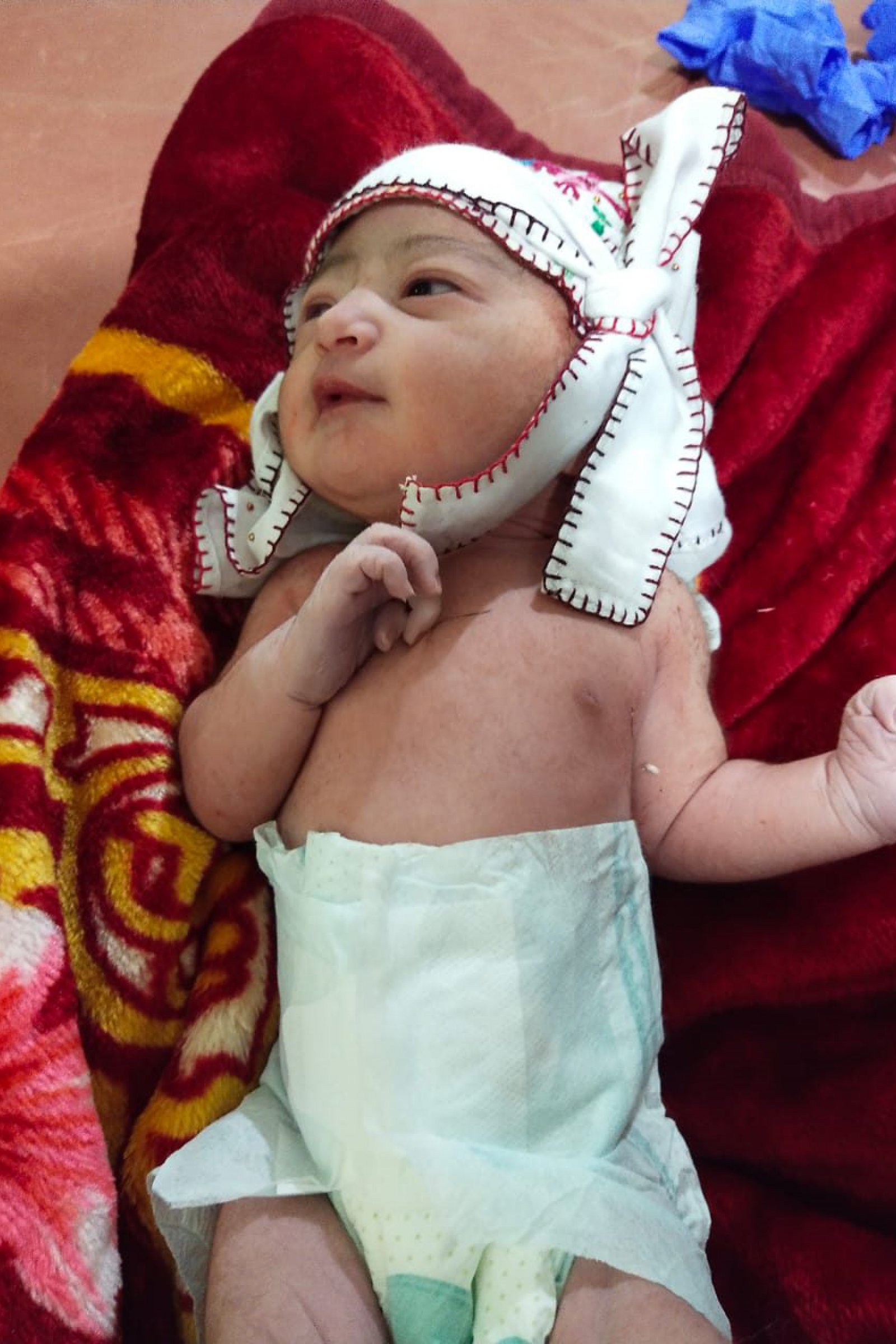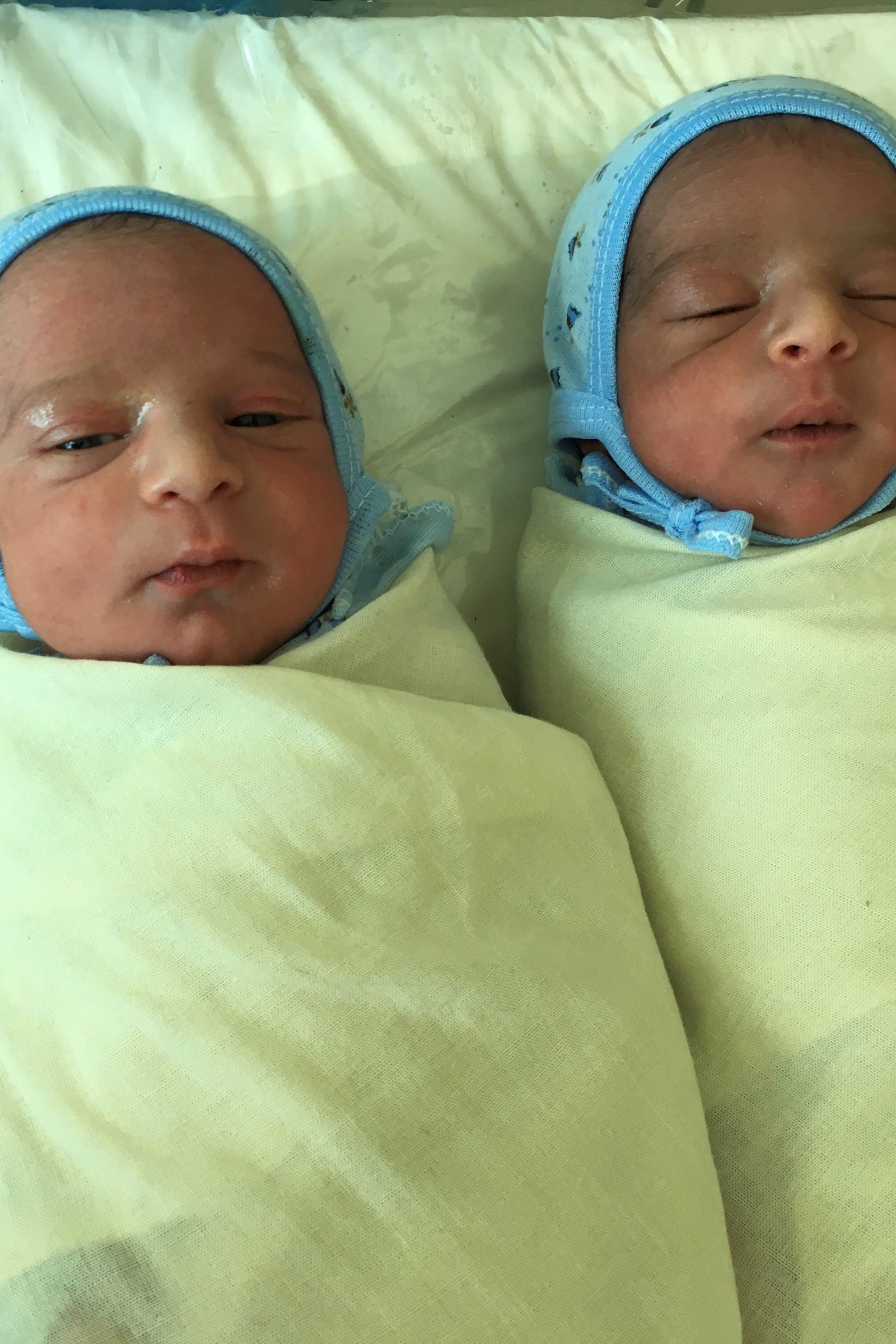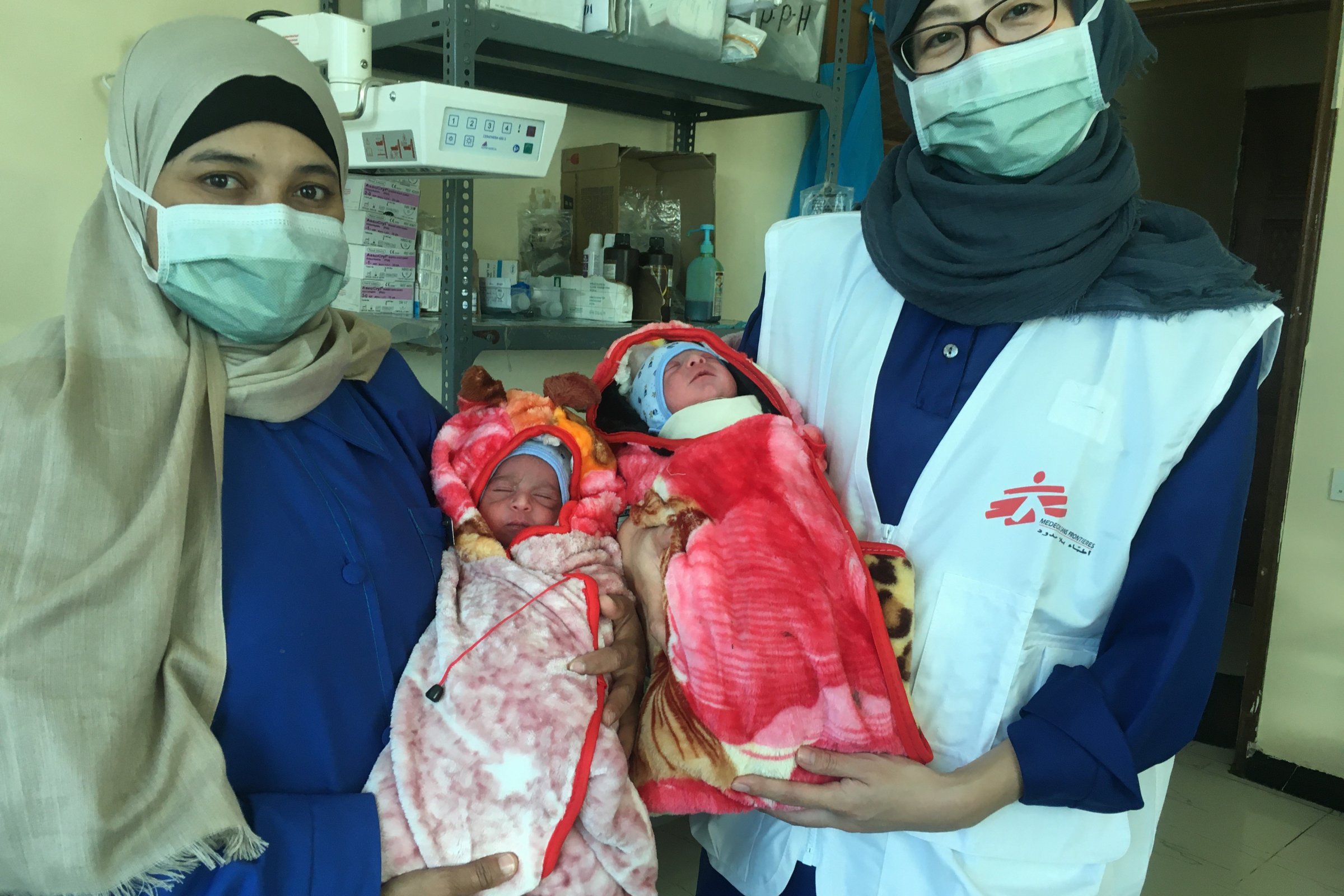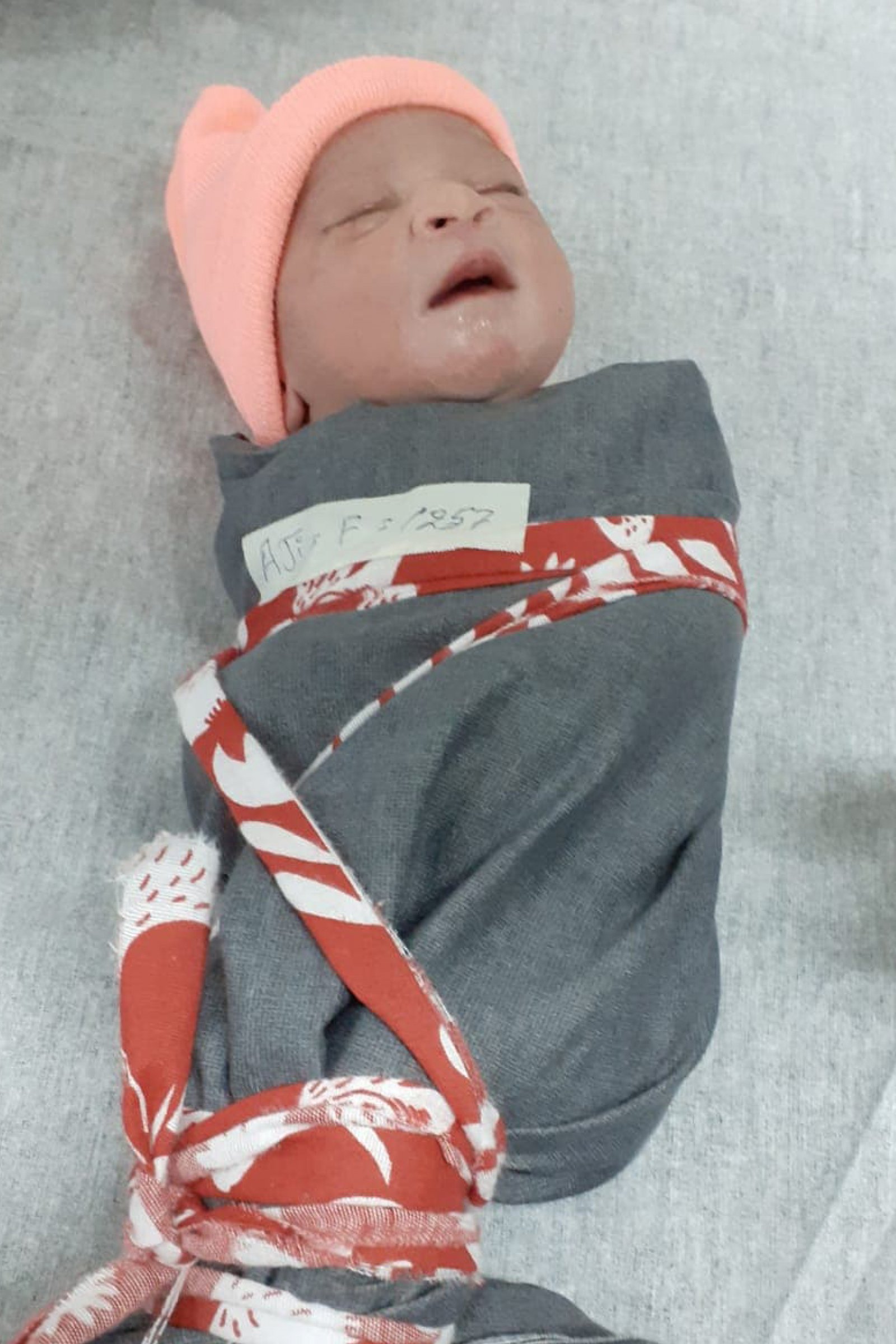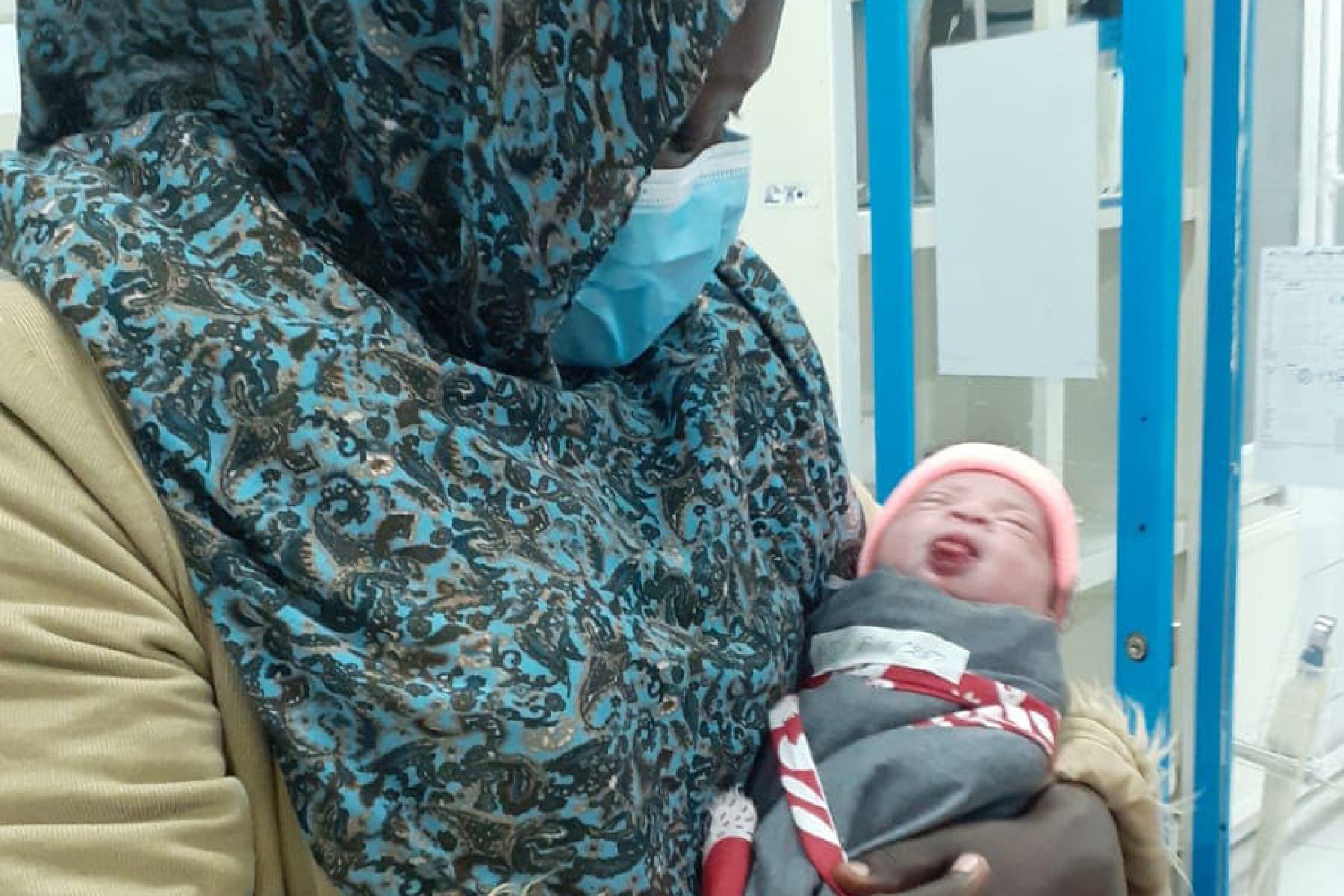New Year babies: Meet the first MSF newborns of 2021
We know it's been a hard year.
The COVID-19 pandemic has undoubtedly changed life for us all here in the UK, while our own teams working around the world have faced tough challenges responding to complex and chaotic humanitarian events.
But, amid the gloom, there is always a reason to find hope. And that feeling is rarely felt more so than inside our maternity wards.
From four MSF hospitals – in Lebanon, Pakistan, Yemen and Afghanistan – meet some of the first babies born into our care in 2021.
Lebanon
In Lebanon, baby Ibrahim was the first baby of the year born at MSF’s Mother and Child Care Centre at Rafik Hariri Hospital in Beirut.
He arrived at 6:05 am on New Year's Day, weighing 3.3 kg. His mother is Razan Dekmak.
After a traumatic year, where the city has been hit hard by the pandemic, an economic crisis and the devastating explosion in August 2020, we hope that the new year brings health, happiness and safety to little Ibrahim and his family.
Pakistan
In Pakistan, our midwives were busy on New Year's Day welcoming lots of new faces into the world, including baby boy Kifayat Ullah and newborn girl Kalsoom.
Kalsoom's mother wants her baby girl to grow up to become a nurse.
In fact, she named her new arrival after nurse Kalsoom who cared for the family in the inpatient department of the MSF Women's Hospital in Peshawar, Pakistan.
It's been an incredibly busy year for the hospital's maternity team. They helped mums to deliver an impressive 4,932 newborns – including many complicated births – between January and November 2020.
Help us prepare for the next emergency
We need your support. Help us care for people caught in the world's worst healthcare crises.
Yemen
Yemen is a country that has endured more than most in 2020 – including outbreaks of diphtheria and cholera, widespread malnutrition and the ongoing brutality of the civil war.
Here, our medical activities are some of our most extensive worldwide.
Bringing renewed optimism into the world with them, twin boys Ayman and Ayham arrived at 9:40 am on the first day of 2021, weighing 2.7 kg each. They were born at MSF's Mother and Child Hospital in Houban, Taiz.
Their mother hopes they will stay healthy and grow up well. Their father has been suffering from a problem with his eyesight, so he has a wish that his vision will be strong enough to see them grow up.
The mother, who is 38, had to be driven for two hours to reach our hospital when she went into labour. Limited access to healthcare is a dangerous obstacle experienced by people across Yemen.
The two midwives who helped deliver the twins are Ghania and Midori. Ghania says her hope for 2021 is that she will continue to improve her midwifery skills so she can help provide more quality care for mothers and babies.
Afghanistan
Our hospital in Khost, Afghanistan, is our busiest maternity ward in the world.
Here, in the first minutes of 2021, a little girl was born at 00:12 am.
She weighs 2.1 kg and has two brothers and a sister waiting for her at home in Khost city, a 30-minute drive from the hospital.
Khost is run by women, for women, with an almost entirely female team working to treat mothers in a country that is one of the most dangerous places in the world to give birth.
When the hospital first opened its doors back in 2012, we were assisting around 15 deliveries a day – a number that quickly began to climb.
Now, our dedicated team regularly deliver over 100 newborns every single day of the year, including the cheeky little girl below...
MSF and maternal health
Many women across the world give birth without medical assistance. This massively increases the risk of complications or death. Ninety-nine percent of these deaths are in developing countries. The majority are preventable with appropriate care.
Our healthcare teams work together with pregnant women to provide delivery services, emergency obstetric care and post-delivery consultations. We work with midwives and traditional birth attendants to establish programmes so complicated births can be identified quickly to help prevent maternal deaths.
